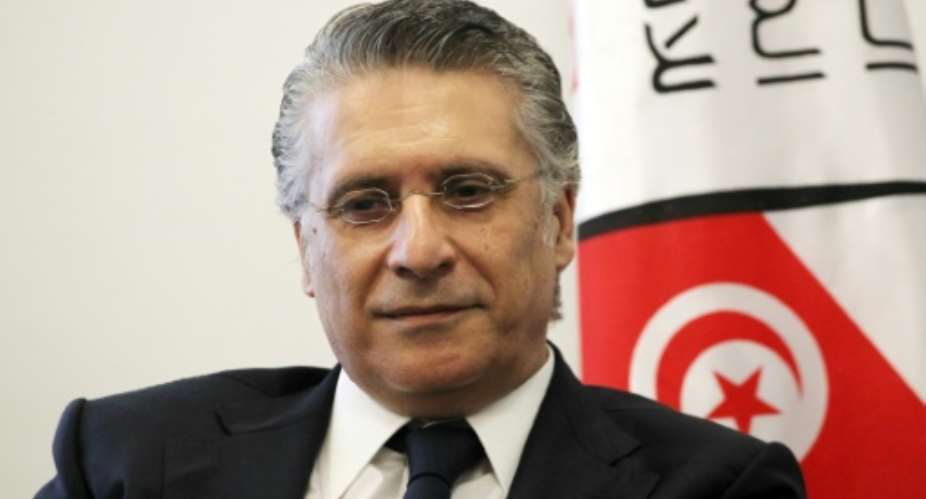Tunisian electoral and media authorities have banned three local outlets from covering the presidential election campaign, including a channel founded by key candidate Nabil Karoui.
The ban targets media mogul Karoui's Nessma TV, alongside Zitouna -- a broadcaster close to the Islamist-inspired Ennahdha party -- and Radio Quran.
"It is not permitted for candidates in the presidential election... (to) conduct their electoral campaigns through these channels, who do not hold licenses and broadcast illegally", Nouri Lajmi, head of the High Independent Authority of the Audiovisual Commission (HAICA), told AFP on Friday.
The ban was agreed jointly by HAIFA and the Independent Higher Authority for Elections (ISIE), Lajmi said.
The campaign is set to take place from September 2 to September 13 and the poll itself is scheduled for September 15.
Established in 2012 to regulate Tunisian media, HAICA has been fighting for months to impose the law on the three outlets.
Nessma TV, one of the leading channels in the country, was banned from broadcasting by HAICA in October 2018 but did not comply and remains on air.
HAICA accuses Nessma TV of "positioning itself to influence government bodies", and rebuked it for not having disclosed its shareholders, reputedly including Italian politician Silvio Berlusconi.
In April, HAICA seized equipment from the channel.
Karoui, a leading candidate in the election, was charged in early July with money laundering.
He says he is being targeted by "attempts to undermine his growing popularity".
Zitouna and Radio Quran are under scrutiny for lack of financial transparency, in particular as they do not report any advertising revenue, according to HAICA.
The popular uprising in 2011 that ousted dictator Zine El Abidine Ben Ali opened up space for the previously largely muzzled media.
Originally scheduled for November, the elections were brought forward after the death last month of incumbent Beji Caid Essebsi.





 Burkina Faso expels French diplomats for 'subversive activities'
Burkina Faso expels French diplomats for 'subversive activities'
 GOIL reduces petrol price by 29 pesewas, sells GHC14.70 per litre
GOIL reduces petrol price by 29 pesewas, sells GHC14.70 per litre
 The disrespect towards security is terrible; we can do better — Atik Mohammed co...
The disrespect towards security is terrible; we can do better — Atik Mohammed co...
 Starlink to cease connection in Ghana, other “unavailable” countries on April 30...
Starlink to cease connection in Ghana, other “unavailable” countries on April 30...
 MMCEs, DCEs and Regional Ministers must be elected to reduce political interfere...
MMCEs, DCEs and Regional Ministers must be elected to reduce political interfere...
 National Cathedral: ‘Nonsense; you take taxes from broke Ghanaians to dig a clum...
National Cathedral: ‘Nonsense; you take taxes from broke Ghanaians to dig a clum...
 April 18: Cedi sells at GHS13.59 to $1, GHS13.01 on BoG interbank
April 18: Cedi sells at GHS13.59 to $1, GHS13.01 on BoG interbank
 We must harness the collective power and ingenuity of female leaders to propel o...
We must harness the collective power and ingenuity of female leaders to propel o...
 Saglemi Housing Project will not be left to rot – Kojo Oppong Nkrumah
Saglemi Housing Project will not be left to rot – Kojo Oppong Nkrumah
 Asantehene commends Matthew Opoku Prempeh for conceiving GENSER Kumasi Pipeline ...
Asantehene commends Matthew Opoku Prempeh for conceiving GENSER Kumasi Pipeline ...
